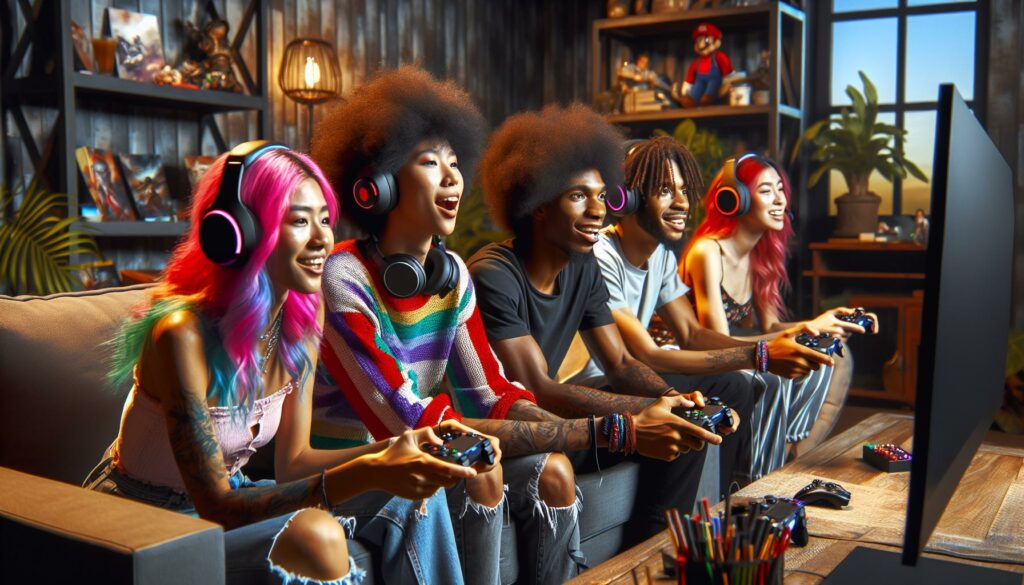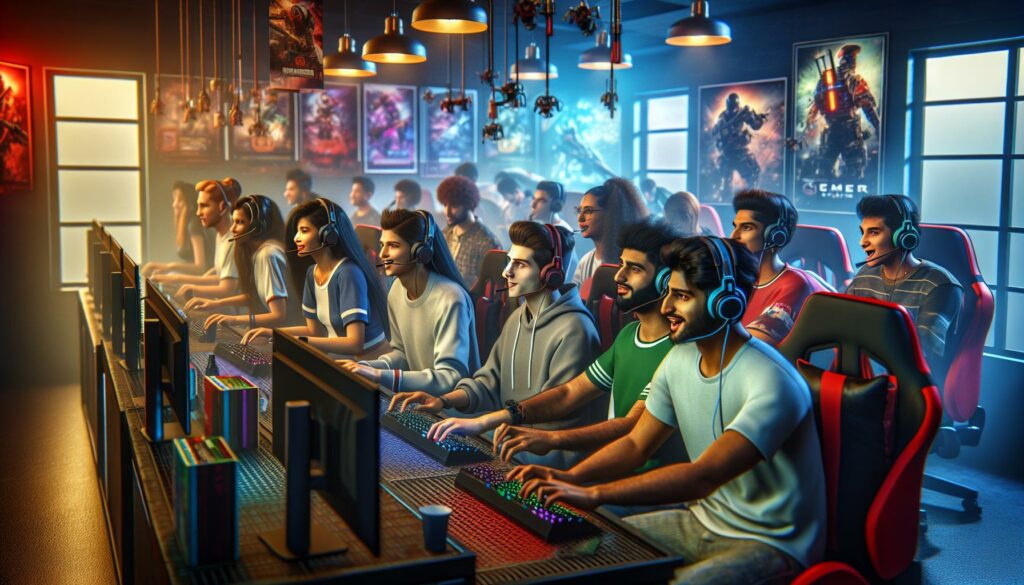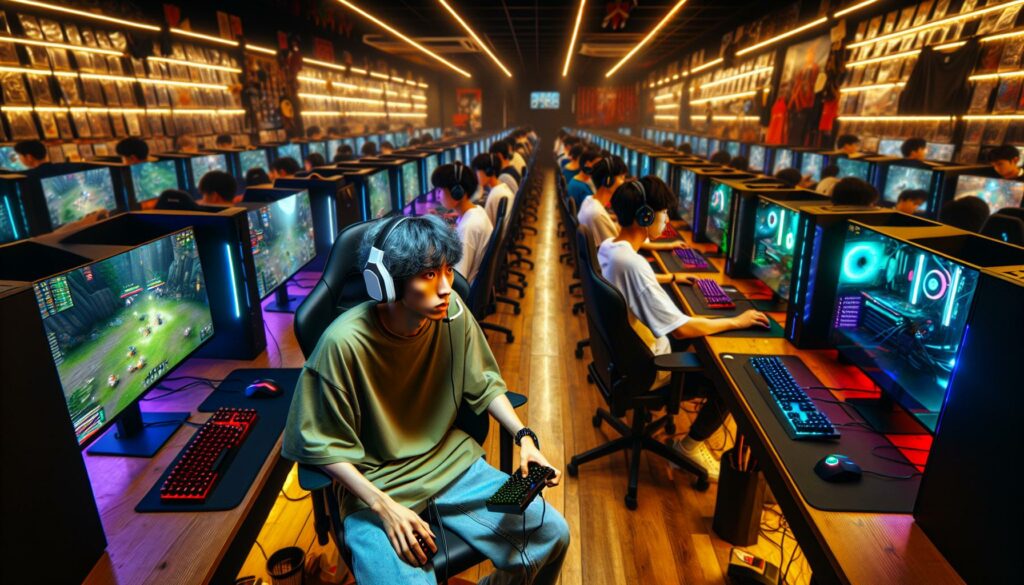Gaming culture has evolved from a niche hobby into a global phenomenon that shapes entertainment social connections and even professional careers. From casual mobile gamers to hardcore esports enthusiasts this dynamic community continues to grow and influence mainstream society in unprecedented ways.
The world of gaming culture encompasses far more than just playing video games. It’s a vibrant ecosystem of streamers content creators conventions and online communities where millions of people connect share experiences and build lasting friendships. With the rise of platforms like Twitch and YouTube Gaming what was once a solitary activity has transformed into a shared experience that transcends geographical boundaries and cultural differences.
What Gaming Culture
Modern gaming culture encompasses a diverse ecosystem of digital entertainment communities connected through shared experiences platforms. Online gaming platforms host 3.2 billion active players worldwide who participate in collaborative gameplay experiences like Fortnite Battle Royales Discord communities Minecraft servers.
Gaming’s social aspects manifest through:
- Digital meetups in virtual worlds like VRChat Second Life Final Fantasy XIV
- Cross-platform communication via Discord TeamSpeak Mumble
- Collaborative achievements in MMORPGs raids guilds clans
- Live streaming communities on Twitch YouTube Facebook Gaming
The rise of esports transformed competitive gaming into a professional endeavor with:
| Aspect | Statistics |
|---|---|
| Global Prize Pools | $1.1B (2022) |
| Pro Players | 27,000+ |
| Viewer Hours | 1.9B (2022) |
| Revenue | $1.38B (2022) |
Gaming vernacular evolved into a distinct language featuring:
- Platform-specific terms: kb+m peeker’s advantage tick rate
- Genre terminology: meta builds boss mechanics farming
- Community slang: gg wp poggers kappa monkaS
- Achievement-based recognition: speedrunning 100% completion
Digital content creation shapes modern gaming through:
- Let’s Play videos showcasing gameplay walkthroughs
- Strategy guides tutorials patch analysis breakdowns
- Gaming news coverage industry insights reviews
- Community highlights fan art cosplay compilations
These elements combine to form interconnected gaming communities that transcend traditional entertainment boundaries creating shared cultural touchstones social connections professional opportunities.
The Evolution of Gaming Communities
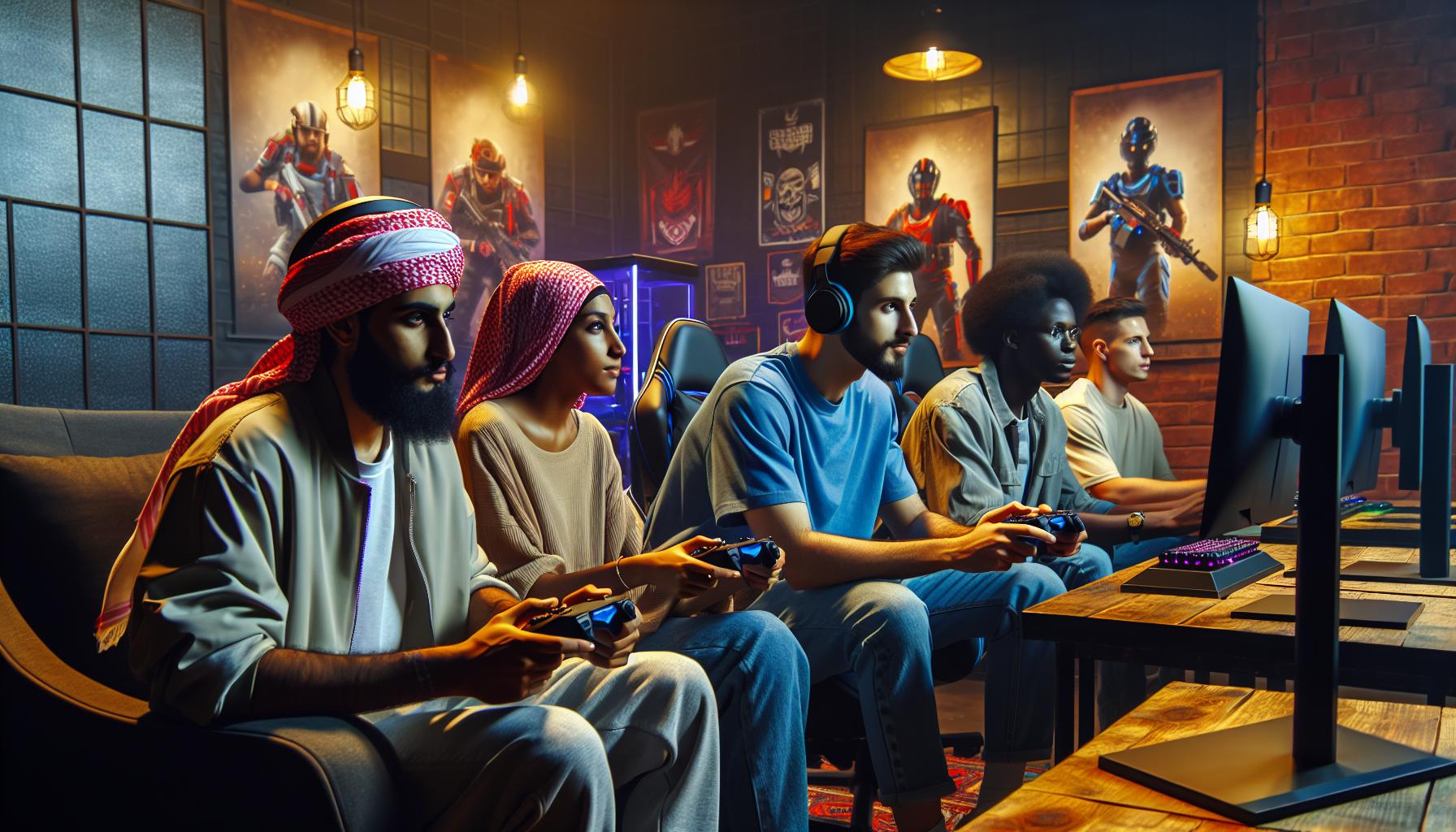
Gaming communities transformed from local arcade gatherings into global digital networks connecting millions of players across platforms. The social dynamics of gaming evolved alongside technological advancements creating new forms of interaction collaboration.
From Arcade Groups to Online Clans
Local arcade communities of the 1980s established the foundation for modern gaming social structures. Players gathered at physical locations to compete share strategies engage in friendly rivalries. The introduction of home consoles shifted gaming interactions to living rooms through split-screen multiplayer experiences. Online connectivity in the 1990s sparked the formation of organized gaming clans particularly in titles like Quake Counter-Strike. Discord servers now host over 150 million active users facilitating communication between gaming groups across 19 million daily servers.
The Rise of Esports
Competitive gaming evolved from informal tournaments into professional esports leagues with structured seasons global championships. Major esports events attract massive audiences with The International 2021 peaking at 2.7 million concurrent viewers. Professional teams compete for substantial prize pools across popular titles:
| Game | Prize Pool (2022) | Active Pro Players |
|---|---|---|
| Dota 2 | $47.1M | 1,700+ |
| CS:GO | $21.5M | 2,000+ |
| League of Legends | $8.0M | 1,500+ |
Tournament organizers like ESL Intel host over 200 major events annually across 15 prominent esports titles. Broadcasting platforms including Twitch YouTube Gaming stream 2.1 billion hours of esports content yearly reaching global audiences.
Gaming Language and Communication
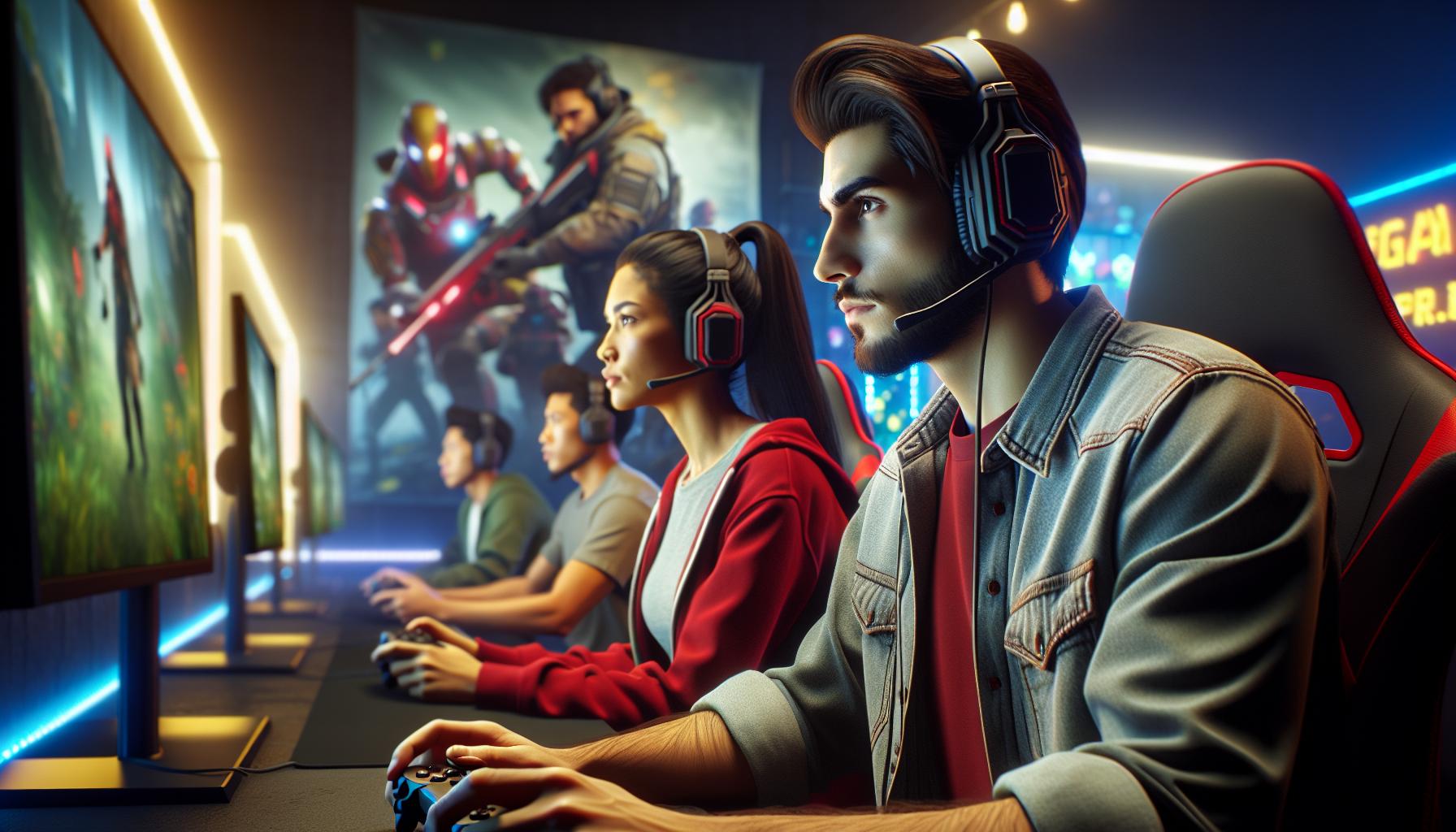
Gaming communities communicate through distinctive language patterns that blend technical jargon with community-created expressions. This unique vernacular forms the foundation of digital gaming culture across platforms forums chat systems.
Common Gaming Terms
Gaming terminology encompasses platform-specific commands developer terms community slang achievement-based recognition. Players use abbreviations like “AFK” (away from keyboard) “GG” (good game) “DPS” (damage per second) during gameplay communication. MOBA games utilize terms such as “farming” “jungling” “ganking” to describe strategic actions. RPG terminology includes “DPS” “tank” “healer” while FPS games feature “camping” “spawn killing” “headshot.” Communication interfaces in games incorporate quick-chat options emotes text commands to facilitate rapid team coordination. Cross-platform terminology creates a universal gaming language understood across different gaming communities regions.
Streaming and Content Creation
Gaming content creators employ specialized terminology to engage with viewers during live broadcasts recorded content. Twitch streamers use platform-specific terms like “bits” “raids” “subs” to acknowledge viewer interactions donations. Content creators generate 8.8 billion hours of watched content annually across major streaming platforms. YouTube Gaming features distinct vocabulary including “likes” “superchats” “memberships.” Live streaming terminology incorporates “PogChamp” “Kappa” “monkaS” as emotional expressions. Professional streamers average 40 hours of content weekly reaching global audiences through multilingual broadcasts. Streaming platforms host 15 million daily active creators who contribute to gaming’s cultural vocabulary.
Impact of Gaming on Society
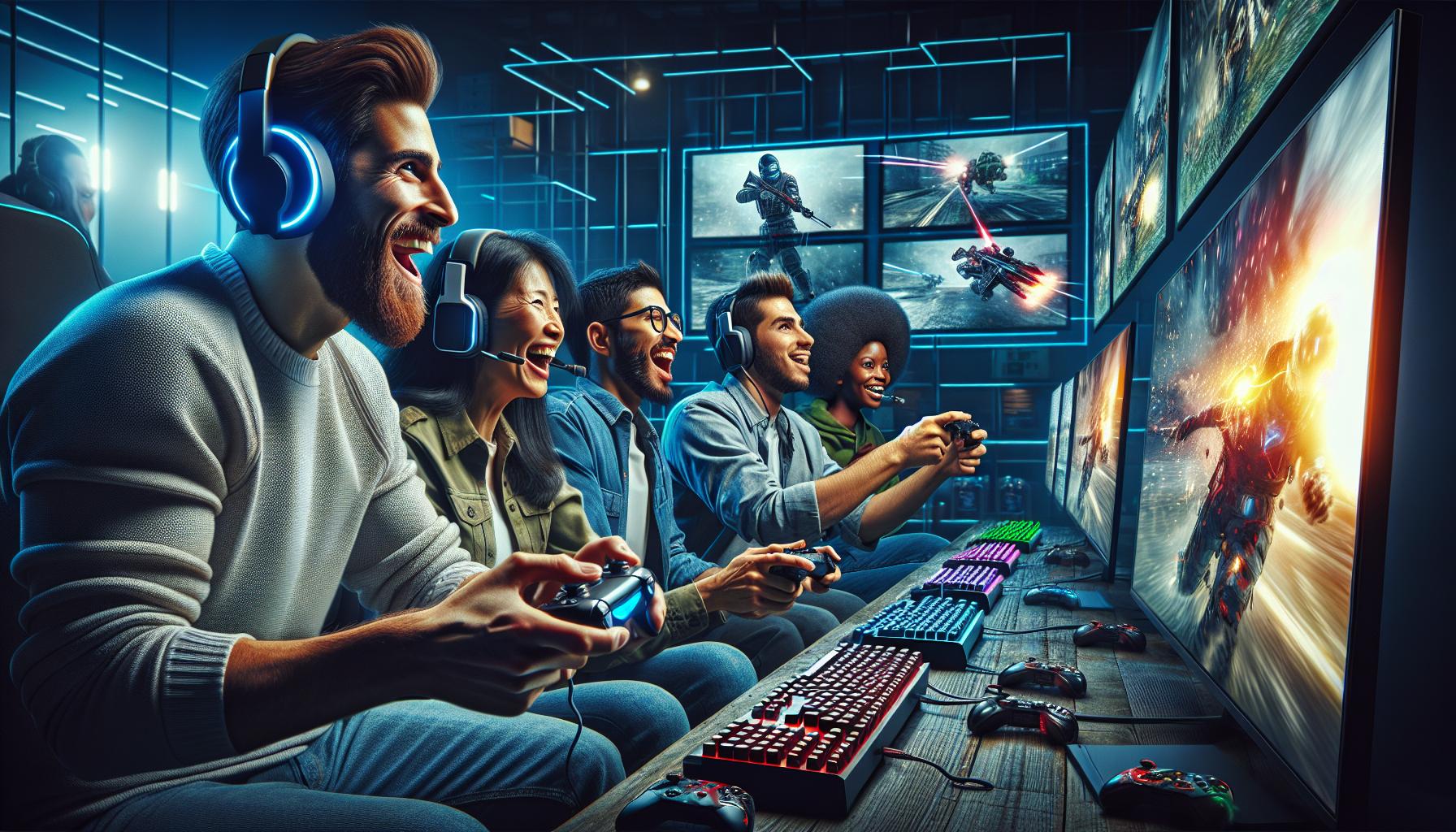
Gaming’s societal influence extends beyond entertainment to shape social dynamics educational approaches health awareness modern workplaces. The digital revolution through gaming platforms creates transformative effects across multiple sectors of society.
Social Connections Through Gaming
Online gaming platforms facilitate meaningful relationships across geographical boundaries connecting 3.2 billion active players worldwide. Studies from the American Psychological Association indicate 70% of gamers form lasting friendships through multiplayer experiences. Digital spaces like Discord communities enable real-time communication for over 150 million users through voice chats text channels shared gaming sessions. Gaming gatherings such as LAN parties conventions create physical spaces for virtual friends to meet strengthening social bonds formed online. Multiplayer games foster teamwork problem-solving skills collaborative achievements among diverse groups of players.
Gaming’s Influence on Pop Culture
Gaming references permeate mainstream media with franchises like Pokemon The Last of Us expanding into successful TV adaptations movies. Major fashion brands collaborate with gaming companies creating exclusive merchandise collections reaching $200 million in sales during 2022. Popular games influence music with artists sampling game soundtracks performing at virtual concerts attracting millions of viewers. Gaming aesthetics shape visual arts with pixel art retro gaming styles appearing in contemporary design architecture advertising. Esports events fill traditional sports venues drawing mainstream attention with The International 2021 reaching 2.7 million concurrent viewers. The integration of gaming elements into daily life demonstrates its significant cultural impact across entertainment fashion media sectors.
Gaming Demographics and Diversity
Gaming demographics reflect a diverse global community spanning multiple age groups, ethnicities, genders, and cultural backgrounds. Modern gaming transcends traditional boundaries, creating inclusive spaces for players worldwide.
Breaking Traditional Stereotypes
Research data dispels outdated gaming stereotypes, revealing a balanced demographic landscape. Women represent 45% of gamers globally, with significant representation across mobile, console, and PC platforms. The average gamer age stands at 35 years, demonstrating gaming’s appeal across generations. Professional gaming leagues feature players from 75 different countries, highlighting international participation. Senior gamers aged 50+ make up 21% of players, engaging primarily in puzzle, strategy, and casual games. Gaming communities embrace participants from varied socioeconomic backgrounds, educational levels, and professional sectors.
Inclusivity in Gaming Spaces
Gaming platforms implement accessibility features to accommodate players with diverse needs. Major developers incorporate customizable controls, colorblind modes, and adaptive peripherals in their games. Online communities establish moderation policies to create safe spaces for underrepresented groups. Cross-platform play enables gamers using different devices to connect seamlessly. Gaming conventions feature dedicated spaces for diverse communities, with PAX events hosting 15 accessibility zones. Industry initiatives support minority developers through targeted funding programs, investing $25 million in diverse studio startups annually. Publishers translate games into 30+ languages, ensuring content reaches global audiences.
The Future of Gaming Culture
Gaming culture continues to evolve through technological advancements social integration. The integration of artificial intelligence machine learning transforms how players interact with games entertainment platforms.
Virtual Reality and Social Gaming
Virtual reality technology revolutionizes gaming experiences through immersive environments enhanced social interactions. Meta’s Quest platform reports 20 million active VR users engaging in social VR spaces like VRChat Rec Room. Advanced haptic feedback systems enable players to feel virtual interactions creating more realistic gaming experiences. Cross-platform VR integration connects players across different devices fostering inclusive gaming communities. Social VR applications incorporate real-time language translation features enabling communication between players from 15 different countries simultaneously. The development of wireless VR systems premium graphics processing expands accessibility reduces physical barriers to entry.
Gaming as a Lifestyle
Gaming integrates seamlessly into daily routines through cloud gaming services mobile platforms. Xbox Cloud Gaming serves 25 million subscribers accessing games across multiple devices. Digital marketplaces generate $85 billion in virtual item transactions annually through in-game purchases customization options. Gaming cafes evolve into social hubs offering premium setups professional training facilities. Streaming platforms host 1.2 billion hours of gaming content monthly connecting creators viewers through interactive experiences. Mobile gaming applications integrate augmented reality features transforming public spaces into gaming environments. Professional gaming careers expand beyond competition including coaching content creation game development roles.
Digital Revolution
Gaming culture has evolved into a dynamic global phenomenon that shapes how people connect entertain themselves and build careers. From casual mobile games to professional esports the gaming landscape continues to break boundaries and challenge traditional entertainment norms.
Through diverse communities specialized languages and innovative platforms gaming culture stands as a testament to human creativity and social connection. As technology advances and society embraces digital interactions gaming will undoubtedly continue to influence and transform how future generations play learn and interact.
The gaming world’s inclusive nature and ability to unite people across geographical cultural and social boundaries proves it’s more than just entertainment – it’s a defining element of modern digital culture.

